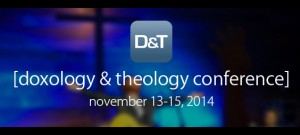The prayers of a worship leader
The corporate prayers of a worship leader are amplified through microphones and sound systems. We carefully think through what words that will be prayed and how our congregation will interpret these words. These prayers are public and congregational in nature. This kind of praying is biblical and mandated by Scripture. The personal prayers of…
The corporate prayers of a worship leader are amplified through microphones and sound systems. We carefully think through what words that will be prayed and how our congregation will interpret these words. These prayers are public and congregational in nature. This kind of praying is biblical and mandated by Scripture.
The personal prayers of a worship leader are offered away from the church platform. We approach the throne of grace with no preliminary thinking other than pursuing personal communion with God. In this praying we are more raw and unfiltered. These prayers are private and personal in nature. This kind of praying is biblical and effective.
As worship leaders, we are participants in prayer first. Secondly, we are teaching and modeling in our prayers. Our language is informed by scripture and God’s word molds the contours of our prayer life. We learn the prominence of prayer through its practice. We call this spiritual discipline a practice because we are continually learning its centrality to the Christian life.
Related: Join Matt Boswell at the Doxology and Theology conference November 13-15, 2014.
Below are five things that I have prayed for myself as a worship leader over the last seventeen years of leading congregational worship. I invite you to write your own prayers, or to augment and amend these. I also invite you to pray. Pray that God would go before you, keep you and use your life for his eternal glory.
God help me to love your glory, more than the fleeting praise of men.
The glory of God is God’s primary and deepest passion. His greatest faithfulness is to himself. Our faith and salvation depend on that truth. (Isaiah 42:8) The glory of God is the goal of biblical worship. As worship leaders, it is central for us to understand that we are agents of provoking affections and calling attention not to us, but to the glory of God. We apply the gospel to our lives by remembering we are accepted solely on the work of Christ, not by our own merit.
God, help me to love the people I lead more than the songs I sing.
Make it your practice to not love people for what they can do for you, or to help further your “ministry”. Love people because this is central to the Gospel. (John 13:34-35) John the Baptist joyfully pursued a smaller platform. Most of us grasp endlessly for a larger one. Avoid the tendency to love the experience of music more than your experience with the people of God. Invest in what is eternal.
God, help me to value the word of God above the creativity of man.
Biblical truth in worship is our foundation. (John 4:24) Sift through the endless resources and choose songs that are grounded in truth and accessible for your church. Christian worship is built upon, shaped by and saturated with the word of God. Value art for what it is: a common grace God uses to glorify himself. However, value the word of God as preeminent in congregational worship.
God, help me to view the whole scope of Christian worship, not just the worship service.
As a worship leader, your role is to call your church to the entire scope of worship practices: corporate, family and personal. (Deuteronomy 6:5-9) Don’t let the idea of worship end with liturgy. If we underestimate corporate worship, we do our people a disservice by not honoring the sacredness of our gatherings. If over estimate the corporate experience, our people will not be taught the invaluable experience of walking in communion with God in the inextricable practices of family and personal worship.
God, help me to walk in character, not to operate out of gifting.
Gifting in the church today will give you a platform to gain the praise of men. Character will give you the enduring reward of leading the people of God. Gifting is vital to the function of leading worship, but character is central to its practice. Without character, gifting is reduced to an entertaining skill set. Our greatest calling is not to be a “gifted” people, but people who are holistically impacted by the sustaining joys of the Gospel. (John 14)
__________
Matt Boswell is the founder of Doxology & Theology, and Pastor of Ministries and Worship at Providence Church in Frisco, TX. Follow Matt on Twitter.
Join Matt Boswell and many others including Bob Kauflin, Matt Papa, Keith Getty and more at the Doxology and Theology conference at Southern Seminary November 13-15, 2014.



